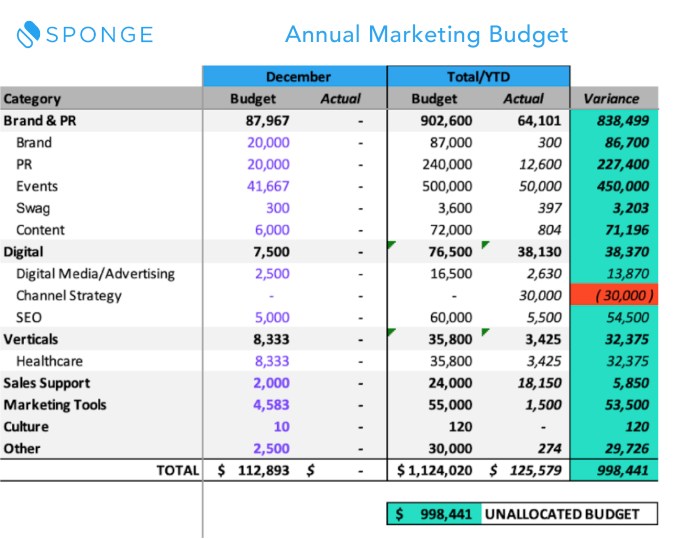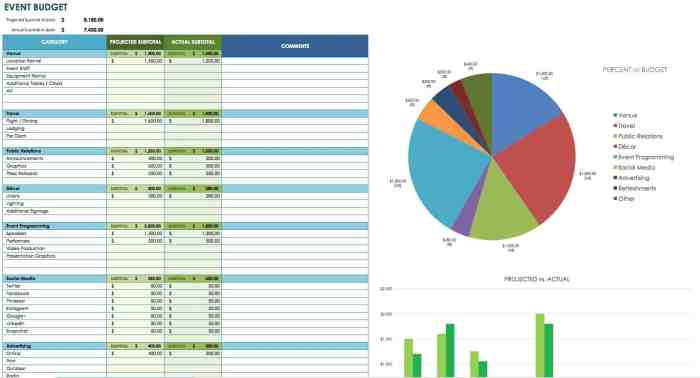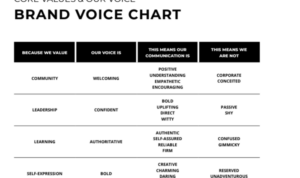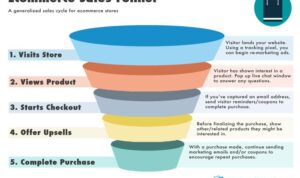Building a Marketing Budget introduces you to the essential steps and considerations needed to create a successful marketing budget, blending creativity with strategy to elevate your business game.
From defining the budget to exploring innovative allocation methods, this topic dives deep into the world of marketing finances with a modern twist.
Overview of Marketing Budget
A marketing budget is a financial plan that Artikels the costs associated with promoting a business, product, or service. It includes expenses for advertising, public relations, events, campaigns, and other promotional activities.
The Importance of Having a Well-Planned Marketing Budget
A well-planned marketing budget ensures that resources are allocated effectively to reach the target audience and achieve marketing goals. It helps in maximizing the return on investment and tracking the performance of marketing efforts.
Relationship Between a Marketing Budget and Overall Business Success
A marketing budget plays a crucial role in the overall success of a business. By investing in marketing activities strategically, businesses can increase brand awareness, attract new customers, and drive sales growth. Companies that allocate sufficient funds to marketing tend to outperform competitors and achieve sustainable growth.
Examples of Successful Companies and Their Marketing Budget Strategies
- Apple: Known for its innovative marketing campaigns and product launches, Apple allocates a significant portion of its budget to marketing to create buzz and generate excitement among consumers.
- Coca-Cola: Coca-Cola invests heavily in marketing to maintain its position as a leading beverage brand globally. The company focuses on creating emotional connections with consumers through storytelling and engaging advertising campaigns.
- Nike: Nike’s marketing budget is geared towards leveraging athlete endorsements, sponsorships, and social media to connect with its target audience and drive brand loyalty. The company’s “Just Do It” campaign is a prime example of successful marketing strategy.
Factors to Consider When Building a Marketing Budget
When building a marketing budget, there are several key factors to take into account that can impact the size and allocation of funds. Industry trends, company size, growth stage, and balancing short-term and long-term goals all play a crucial role in determining an effective marketing budget.
Impact of Industry Trends on Marketing Budget Decisions
Industry trends can heavily influence marketing budget decisions. For example, if a particular social media platform is gaining popularity among the target audience, allocating more budget towards digital marketing may be necessary to stay competitive. On the other hand, if traditional marketing channels are still proving effective within the industry, it may be wise to maintain or increase budget in those areas.
Company Size and Growth Stage Affect Budgeting
The size of a company and its growth stage can significantly impact budgeting decisions. A smaller startup may need to allocate more budget towards brand awareness and customer acquisition, while a larger corporation may focus on retention and loyalty programs. Understanding where the company stands in terms of growth and size is crucial in determining the appropriate budget allocation.
Balancing Short-term and Long-term Marketing Goals within a Budget, Building a Marketing Budget
Balancing short-term and long-term marketing goals within a budget is essential for sustained success. While short-term goals may focus on immediate sales and conversions, long-term goals could include building brand reputation and customer loyalty. Allocating budget towards both types of goals ensures a comprehensive marketing strategy that can drive growth over time.
Strategies for Allocating Marketing Budget

When it comes to allocating your marketing budget, there are various strategies you can consider to make the most out of your resources.
Allocating Funds Across Different Marketing Channels
It’s important to diversify your budget across different marketing channels to reach a wider audience. Consider allocating funds to digital marketing, traditional advertising, social media campaigns, and other relevant platforms based on your target audience.
ROI vs. Brand Awareness
Deciding whether to allocate budget based on ROI or brand awareness depends on your marketing goals. While ROI-focused strategies prioritize immediate returns, brand awareness strategies aim to build long-term recognition and loyalty. Consider a balanced approach to achieve both short-term results and long-term brand equity.
A/B Testing for Budget Optimization
A/B testing involves creating two versions of a marketing campaign to determine which performs better. By allocating budget to test different strategies, you can optimize your spending by investing in what works best for your target audience.
Adapting Budget Allocations Based on Performance
Regularly review your campaign performance and feedback to adapt your budget allocations accordingly. If a particular channel is not delivering the expected results, consider reallocating funds to more effective channels to maximize your marketing efforts.
Tools and Technologies for Managing a Marketing Budget

When it comes to managing a marketing budget effectively, utilizing the right tools and technologies can make a significant difference in optimizing expenses and maximizing ROI.
Popular Tools and Software for Tracking Marketing Expenses
- 1. Excel or Google Sheets: These spreadsheet tools are commonly used for manual budget tracking and analysis.
- 2. QuickBooks: Ideal for small businesses to track expenses and generate financial reports.
- 3. HubSpot: Offers a comprehensive platform for marketing automation, including budget tracking features.
Benefits of Using Budgeting Tools for Data Analysis
- 1. Data Accuracy: Budgeting tools provide real-time data, ensuring accurate analysis and decision-making.
- 2. Cost Transparency: Easily track expenses and identify areas for cost savings or reallocation.
- 3. Performance Metrics: Measure the effectiveness of marketing campaigns and adjust strategies accordingly.
Automation for Streamlining Budget Management Processes
- 1. Automated Reporting: Save time by automatically generating reports on marketing expenses and performance.
- 2. Alerts and Notifications: Receive alerts for budget overruns or unusual spending patterns to take immediate action.
- 3. Integration with CRM: Seamless integration with CRM systems for a holistic view of marketing and sales data.
Examples of Companies Leveraging Technology for Optimizing Marketing Budgets
- 1. Amazon: Utilizes advanced analytics tools to track marketing spend and optimize ad campaigns for maximum ROI.
- 2. Coca-Cola: Implements AI-driven budgeting tools to analyze consumer behavior and allocate marketing resources effectively.
- 3. Netflix: Leverages machine learning algorithms to personalize marketing strategies and allocate budget based on viewer preferences.





